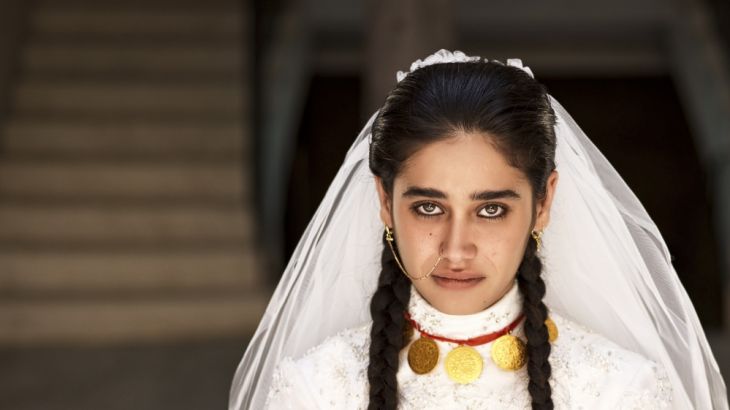
Kismet: How Soap Operas Changed the World
An inspirational film that uncovers the impact of Turkish soap operas on women across the Arab world and beyond.
Turkish soap operas have taken the world by storm, breaking taboos and conquering the hearts of millions of viewers.
With unprecedented access to the industry’s most glamorous actors and creative talent, this film travels from North Africa to the Middle East, Turkey and the Balkans to discover the secret of their phenomenal success and powerful impact on women across the region.
Keep reading
list of 4 itemsMandela’s world: A photographic retrospective of apartheid South Africa
Portrait by Gustav Klimt sells for $32m at Vienna auction
UK returns looted Ghana artefacts on loan after 150 years
FILMMAKER’S VIEW
By Nina Maria Paschalidou
Veria, northern Greece, 8pm. It is a typical Monday night and my 84-year-old grandmother Marika is waiting to see Onur, the protagonist of the series Thousand and One Nights on TV. As she watches Onur and Sehrazat fall in love, she recalls the time Veria was a Balkan melting pot; Greeks lived next door to Turks, Jews and Slavs. The house she lived in with my grandfather Thanasis was bought from a Turkish businessman.
Marika has watched all of the popular Turkish series, reliving all the human joys and troubles through the eyes of the protagonists. Now, she spends her time watching A Thousand and One Nights, a series that follows a widow forced to sleep with her boss to get medicine for her son’s leukemia.
At the same time my friend Amira in Damascus, Syria, shared with me her passion for Fatmagul, a Turkish soap opera that tells the story of a girl who was raped but finds the courage to take her case to court. Amira told me the series was triggering victims of rape in the Arab world to speak out.
Intrigued by this frenzy, I realised that the Turkish soaps, popular mainly in the Middle East, Balkans and North Africa, have a unique influence on female viewers: they inspire and arouse them.
Noor, for example, depicts the kind of family that the average housewife longs for, a handsome blond husband, very much in love with his only wife; a wife who has the economic freedom to walk away if she needs to because she is a modern working woman; a family patriarch who is strict yet tolerant to his children and his daughters-in-law. One cannot ignore the social impact they have.
I decided to film Kismet in order to explore the dynamics of the Turkish soap operas in these countries and to discover how these taboo-breaking soaps are helping women across the region to transform their lives.
Relying on a series of remarkably daring soap operas that deal with child brides, rape, divorce, Kismet challenges stereotypes about Muslim women and helps to reframe gender issues in the region in an innovative and entertaining way.
I wanted to explore the ties between women in the Balkans and the Middle East. Despite the cultural differences the hearts of these women beat in the same way. I also wanted to find out who the women of our neighbouring countries are.
Can Greek women have more in common with women in the East, rather than with women in the West? With Greece amidst a political and economical crisis, questioning its western heritage, the East has become even more alluring. Greek women and men are caught in a battle between the two, and today, their eastern dreams are gaining ground.
In Egypt, as more women face sexual harassment every day, the popularity of Turkish soap operas has increased. The series continue to provide a comfort zone away from the harshness of reality, reviving the beauty of life and hope that many viewers aspire to.
But they also become an inspiration for women to speak out. As they watch stories such as Fatmagul and Life Goes On on the screen they realise that they are not alone and they decide to take the situation in their own hands and break their silence.
Across the region, from West to East, the soaps continue to provide an alternative vision of the world, where women are treated with respect and love, and the romance that seems so unreal in their situation becomes a reality.
| In Pictures: |